Reviews
Frank Borzage
USA, 1928
Credits
Review by Cullen Gallagher
Posted on 13 February 2009
Source Fox DVD
Categories The Silence After Sound: Hollywood’s Last Silent Movies
A simple title-card begins Street Angel, setting the tenor for the story to come and announcing its major theme, which would reverberate throughout director Frank Borzage’s career: “Everywhere… in every town, in every street… we pass, unknowing, human souls made great by love and adversity.” Street Angel is not just the story of a gutter waif (Janet Gaynor) and an itinerant painter (Charles Farrell) who fall in love and must persevere against all the obstacles the world throws at them. Instead, Borzage elevates them to the level of gods. The streets they walk are not those of Naples, but of a mythological space akin to Mount Olympus. Everything, and everybody, is the absolute embodiment of an ideal: life is hardship, love is divine, fate is always against us, and people are either saints or devils. Or, as the title suggests, angels—fallen from the heavens, and left to battle here on earth. Even nightmares have a perfection about them, as though they have never before been more terrifying. Which makes dreams all the more divine, all the more desired, and all the more out of reach.
Janet Gaynor (who won the first ever Academy Award for Best Actress for combined roles in Street Angel, Seventh Heaven, and Sunrise) plays Angela, an impoverished young woman who is forced to resort to prostitution in order to pay her ailing mother’s medical bills. But instead of picking up customers, she spends more time watching the wanton women of the streets, naively imitating their provocative struts, and walking blindly into the sides of buildings. Abandoning the world’s oldest profession before she’s even begun, Angela attempts to steal the change off a vendor’s counter and is immediately caught and arrested. Escaping while en route to jail, she evades the police and returns home only to find her efforts were futile. Her mother is dead.
On the run from the police again, Angela takes refuge in a traveling performer’s bass drum, which not only carries her own of Naples but also leads her to a new life. Reborn as a circus performer, she has exchanged her sorrows for joy: where she was hungry and unemployed, she now has food and a job, and whereas she was alone and friendless before, she now has a new family. On the road, her troupe encounters a traveling painter, Gino (Charles Farrell), whose talents threaten to steal their audience. Instead of competing, Gino joins up with the troupe and begins a love affair with Angela.
Can such happiness be sustained? Like Icarus, Angela literally flies too close to the sun—while standing high above the crowds on stilts, she spots a pair of policemen. Reminded of her fugitive status, she falls and injures herself. Unaware of her past, Gino takes her back to Naples, intending to care for her. Instead, he brings her right back into the hands of the law. There begins their mutual fall from grace, as Angela must make good with the law, and Gino must decide whether she is really the angel he took her for or just a “street angel” like the other prostitutes.
Just as Aeneas did before them, Angela and Gino must both venture into the underworld. The scenes of Angela in jail show Borzage at his most expressionistic, with the warden’s oversized shadow looming over Angela’s small figure, and a fence made of jagged, uneven sticks that follows the stone steps down into the abyss. Gino’s own solitary excursion into the fog-enshrouded streets is condensed into a single tracking shot that passes unnoticed through the oblivious, unsympathetic crowd. Whereas once Angela and Gino’s world echoed their own joy, now it reflects their despair. Borzage instills every inch of the set, every detail of his direction, with their personal grief. Each frame is a manifestation of Borzage’s pathos for his characters and their anguish.
To label Street Angel as merely a melodrama is to miss the grandeur of Borzage’s vision: the meticulous detail of the set, the dense atmosphere of shadows and fog, and the anthropomorphic camera that stalks the streets as though it too were ensnared in the drama along with the characters. And then there are Angela and Gino, who seem so much more than you or I (unlike the “ordinary” protagonists of Paul Fejos’ Lonesome or King Vidor’s The Crowd). It’s not a matter of being “better” or “worse,” but that they represent an extremity that no real person could ever embody. Melodrama isn’t being used as escapism, but as a type of mythology. Borzage is like a cinematic Homer, and we invest into Street Angel’s rich narrative and larger-than-life characters in order to experience a heightened sense of reality so much more expressive than our own.
More The Silence After Sound: Hollywood’s Last Silent Movies
-
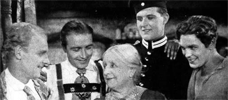
Four Sons
1928 -
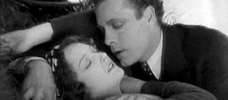
The Crowd
1928 -
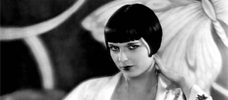
A Girl in Every Port
1928 -
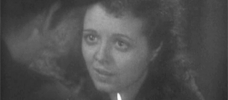
Street Angel
1928 -

The Patsy
1928 -
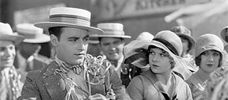
Lonesome
1928 -
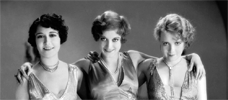
Our Dancing Daughters
1928 -
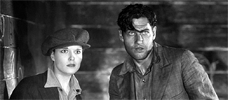
Beggars of Life
1928 -
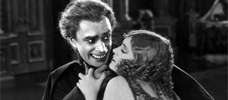
The Man Who Laughs
1928 -
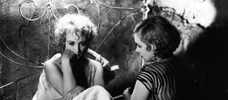
The Docks of New York
1928 -
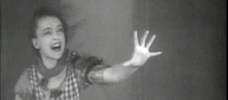
The Wind
1928 -
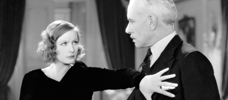
A Woman of Affairs
1928 -
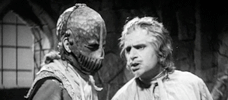
Iron Mask
1929 -
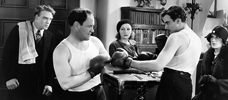
The Single Standard
1929 -
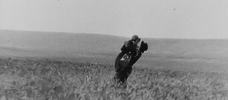
City Girl
1930 -
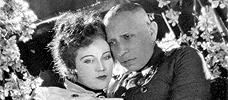
The Wedding March
1928
We don’t do comments anymore, but you may contact us here or find us on Twitter or Facebook.



